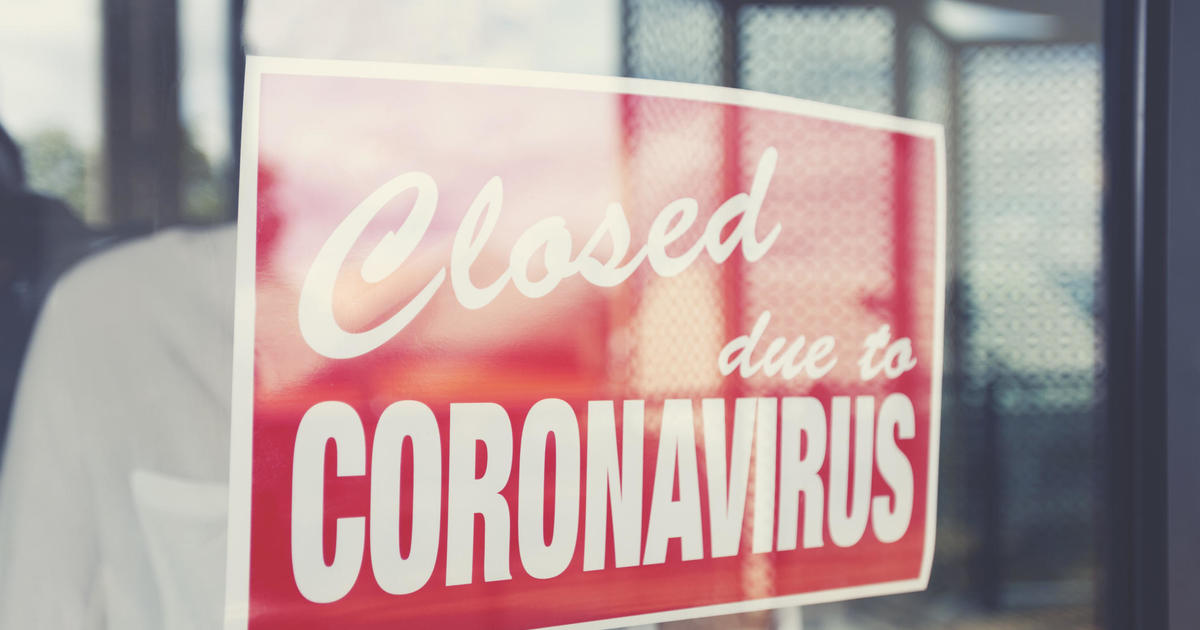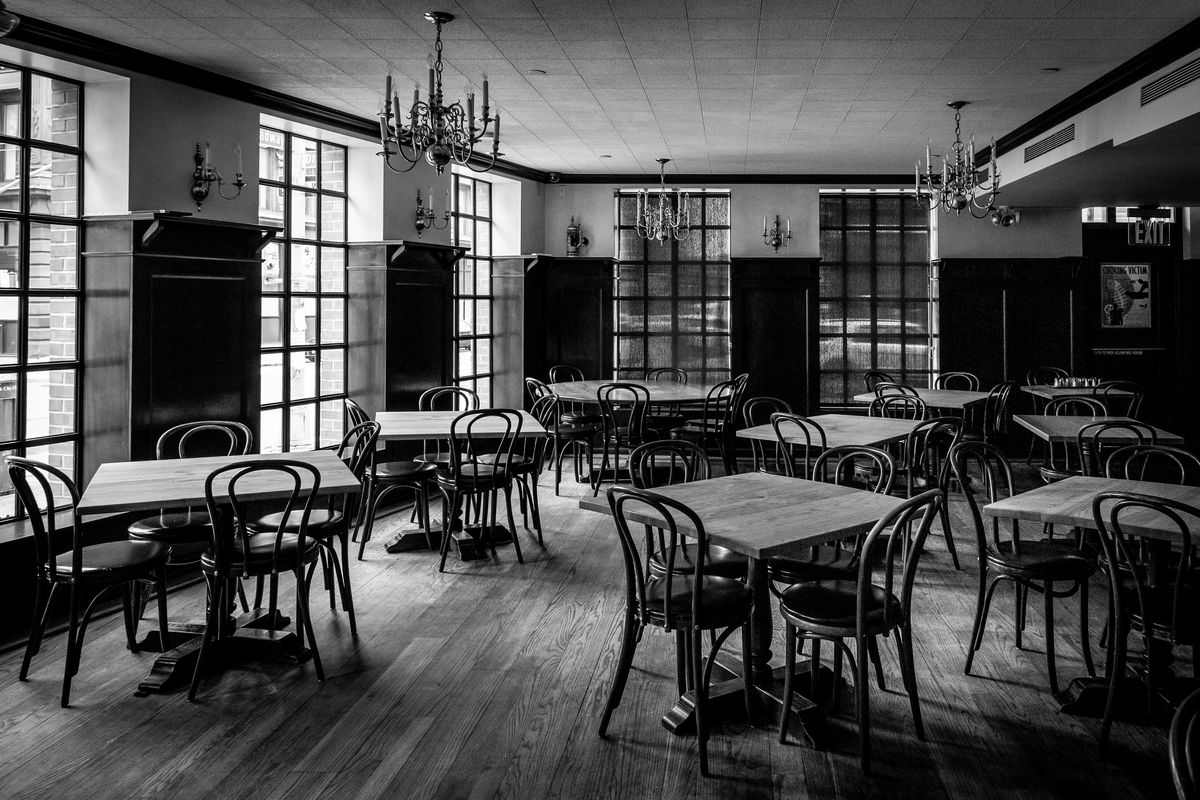The COVID-19 pandemic has devastated many aspects of both the United States and the world economy by completely revolutionizing the way that people live. One of the industries that has been most affected by the pandemic has been the restaurant industry, as it heavily relies on in-person dining in order to facilitate the desired experience that many expect from attending a restaurant. In fact, the restaurant industry has been so devastated by the pandemic that 2.5 million American restaurant employees have lost their jobs, and the industry itself has lost $240 billion in sales just in this year (Hess). Making matters worse, 47% of restaurant employees in the US are minorities, so the affect that Covid has had on the restaurant industry has led to the disproportionate suffering of minorities. Further, the negative economic impact on the restaurant industry as a result of the pandemic has grave cultural repercussions, with many fearing a loss of cultural expression and interconnectedness as local restaurants continue to go out of business (Hess). Thus, the devastation that has ravaged the restaurant industry this year has impacted the lives of countless individuals in varying ways.

An image of a closed sign outside of a restaurant. (Photo by CBS News).
The effects on the restaurant industry seen in the U.S. are magnified under New Orleans’ tourism based economy, and the fact that the city is world-renowned for its food, culture, and music. Many New Orleans citizens and business owners have regarded Covid’s effect as similar to that of hurricane Katrina, and some fear that it may be worse due to the uncertainty of how the pandemic could affect the city (Anderson). Further, it has the potential to affect New Orleans more than the rest of the United States, both economically and culturally. Andy Kopplin, president and CEO of the Greater New Orleans Foundation, stated that stopping tourism and closing restaurants “affects the hotel worker, it affects the bartender, it affects the Uber driver, it affects the tour guide, it affects the whole economy’’ (Anderson). This is due to the economic base of New Orleans’ economy, which is disproportionately reliant on tourism and the restaurant industry; thus, when restaurants are severely impacted, it affects every other aspect of the economy as well. Further, the restaurant industry plays a massive role in the cultural identity of both the city and the many diverse voices that it is composed of. In an interview I conducted with Jessica Speight, The Director of People and Hospitality for Pomhospitality, along with my colleague Becca Lee, she confirmed how essential the restaurant industry is to the cultural identity of New Orleans. She stated: “you have all of these different influences and when you start losing that… you’re not New Orleans anymore… what makes New Orleans so beautiful is it’s not just one person or one type of food.” Thus, not only are the economic repercussions in the city grave, but New Orleans’ cultural essence is also at stake with the negative impact on the restaurant industry in the city.

A photo of an empty restaurant during Covid. (Photo by Gary He)
Further, the economic and cultural effect on minorities is also felt with greater magnitude in New Orleans than in the rest of the United States. With the population of the city being almost 60% African American compared to that of the whole United States, which is only 13%, this effect is expected to be far greater (Census). In the interview with Jessica Speight, she confirmed this disparity: “Alon [owner of Saba and Shaya] has a lot of friends in the industry that are minorities that have struggled this year.” It is evident that minorities, African Americans in particular, have struggled disproportionately in the city as a result of the pandemic.
Restaurants have proved to be a beacon for cultural identity and expression as well as a catalyst for relieving xenophobic attitudes in countless communities globally. The impact that restaurants have on both cultural preservation and expression has been determined to be “not only symbolic but also [a] tangible and concrete way that ethnic identities are preserved by migrants in multicultural societies” (Reddy Et. Al). With the city of New Orleans being a melting pot of varying cultures and attitudes, many migrants are reliant on the preservation and expression of their own cultures through restaurants in the city. Further, in a recent publication by the Journal of Ethnic Foods, the author, Defne Karaosmanoğlu, found that “food spaces” are spaces where “feelings, such as joy, aggression, hate, fear, and love, are negotiated” and this might “open a way to accept and understand the other” (Karaosmanoğlu). Thus, restaurants serve as neutral gathering grounds for members of different cultures to facilitate greater intercultural understanding. The seamless and natural way that these conversations are able to be has a profound influence on the alleviation of xenophobic and racist attitudes between members of different cultures and ethnicities, and the loss of these sacred gathering places would be severely felt in the social, intercultural communities of New Orleans. Further, because the New Orleans economy is so reliant on the restaurant industry, these proven effects are felt with greater intensity in the city than in most other parts of the world, and because New Orleans is primarily African American, that community is the most adversely affected.
Nevertheless, it is in the power of the citizens of New Orleans, and of every other city that has documented these adverse effects, to support the local businesses and restaurants that have brought life and cultural understanding to many communities. I encourage you to shop locally, support family owned businesses, and do all you can to preserve the glowing culture of New Orleans, one of the most unique cities in not only the United States, but the world.
For more resources, consult the infographic attached here: #savenolarestaurants
This piece was edited by Eliza Griggs as part of Professor Kelley Crawford’s Digital Civic Engagement course at Tulane University.
Bibliography
Anderson, Brett. “New Orleans Restaurants, Used to Disasters, Reckon With Something Worse.” The New York Times, The New York Times, 28 Mar. 2020, www.nytimes.com/2020/03/28/dining/new-orleans-restaurants-coronavirus.html.
Hess, Abigail Johnson. “’I Have Enough Money for Food, Not for Rent’: How Restaurant Industry Workers Are Navigating the Pandemic.” CNBC, CNBC, 9 Feb. 2021, www.cnbc.com/2021/02/09/how-restaurant-industry-workers-are-navigating-covid-19.html.
Karaosmanoğlu, Defne. “How to Study Ethnic Food: Senses, Power, and Intercultural Studies.” Journal of Ethnic Foods, vol. 7, no. 1, 4 May 2020, doi:10.1186/s42779-020-00049-1.
Reddy, Geetha, and Rob M. van Dam. “Food, Culture, and Identity in Multicultural Societies: Insights from Singapore.” Appetite, Academic Press, 18 Feb. 2020, www.sciencedirect.com/science/article/pii/S0195666319311602.
Shigihara, Amanda Michiko. “Postmodern Life, Restaurants, and COVID-19.” 14 Dec. 2020.
“U.S. Census Bureau QuickFacts: New Orleans City, Louisiana.” Census Bureau QuickFacts, www.census.gov/quickfacts/fact/table/neworleanscitylouisiana/RHI225219.
“U.S. Census Bureau QuickFacts: United States.” Census Bureau QuickFacts, www.census.gov/quickfacts/fact/table/US/PST045219.
 NOLAbeings Multimedia artist Claire Bangser created NOLAbeings as a portrait-based story project that marries...
NOLAbeings Multimedia artist Claire Bangser created NOLAbeings as a portrait-based story project that marries...  Voodoo in New Orleans: Reviving history: New Orleans fortune telling This article takes a deep dive into the history of Voodoo in New Orleans, its hybridization with Catholicism, and its present-day place in the city's culture. The author visits fortune-tellers in the French Quarter, using their guidance as a tool for introspection rather than a deterministic predictor of the future. Through her experiences in New Orleans, the author feels a mystical connection to both the past and the future.
Voodoo in New Orleans: Reviving history: New Orleans fortune telling This article takes a deep dive into the history of Voodoo in New Orleans, its hybridization with Catholicism, and its present-day place in the city's culture. The author visits fortune-tellers in the French Quarter, using their guidance as a tool for introspection rather than a deterministic predictor of the future. Through her experiences in New Orleans, the author feels a mystical connection to both the past and the future. 